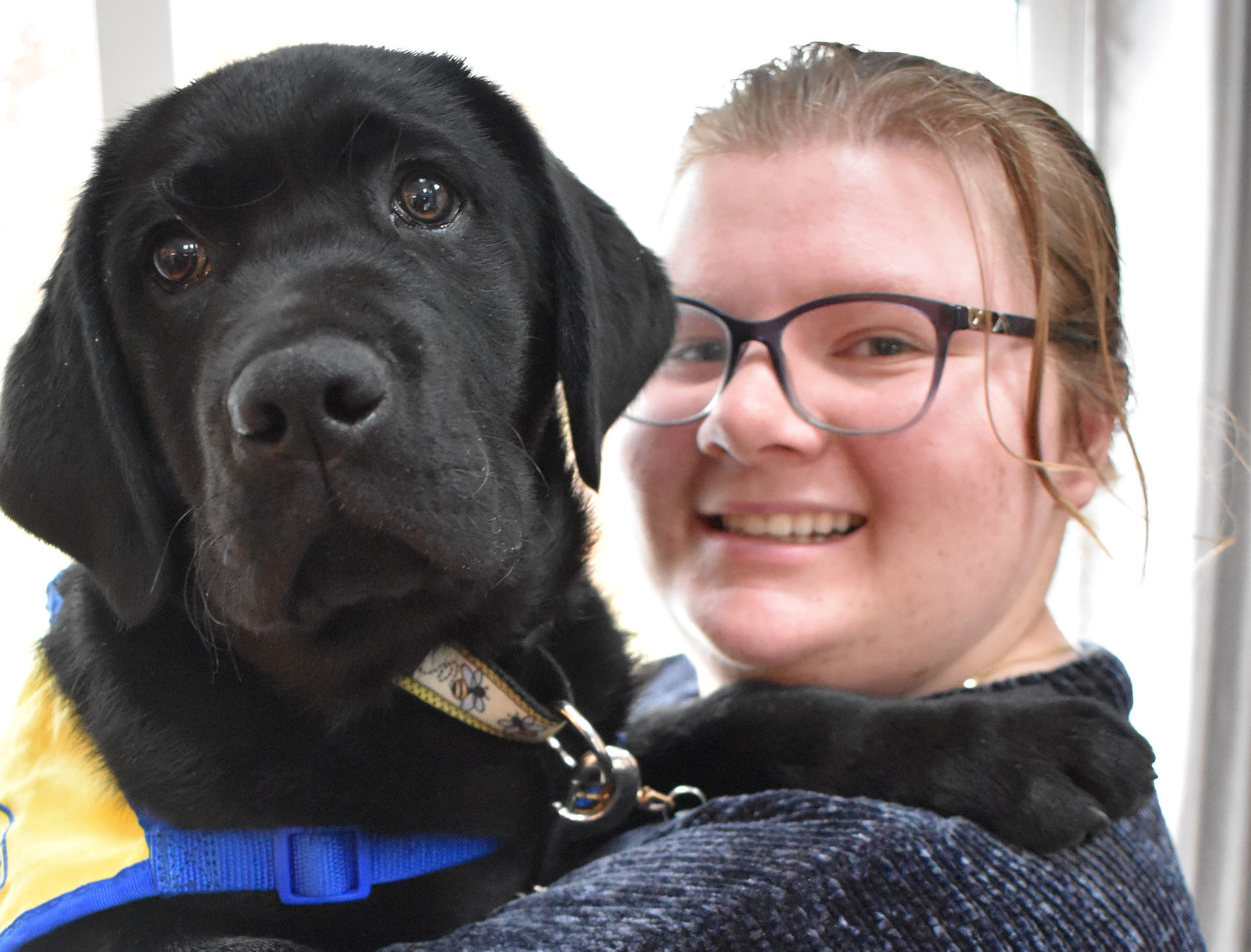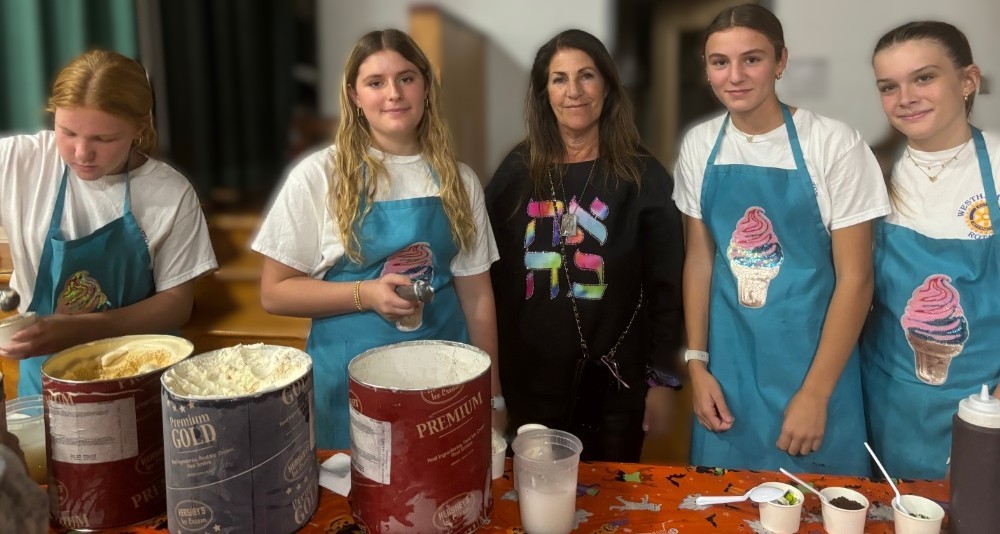Puppy Love


Emily Schoen, a 19-year-old resident of Sag Harbor, is clearly in love with Larkin, her 15-week old black Labrador-golden retriever mix puppy. Whenever he’s not napping — and like most puppies he does that a lot — she is busy teaching him basic commands from “sit” to how to walk on a leash without pulling.
“He’s basically been the perfect puppy,” she said, as Larkin contented himself with a chew toy. “He’s my little angel.” So why is she already resigned to the idea that she’ll have to give him up in the not so distant future?
Schoen is a puppy raiser for Canine Companions for Independence, a nonprofit organization that provides free service dogs for people with a broad array of disabilities.
After an extensive interview process, Schoen was given the opportunity to foster a puppy with the full understanding that she would be responsible for its upkeep, including veterinary bills, as well as following a training regimen that requires the dog to learn up to 40 commands. After 18 months, she will be required to surrender Larkin so he can be moved to another CCI facility for advanced training before being placed with a client.
“Everyone is doing this for a good reason,” said Stacy Sodano, CCI’s Puppy Program administrative assistant in Medford. “They want to pay it forward. The puppy they help raise is going to change someone’s life.”
“Seeing who he ends up with will make it all worthwhile,” Schoen added.
Schoen comes from a family known for its altruism. Her mother Denise, a longtime volunteer with the Sag Harbor Volunteer Ambulance Corps, has made four trips to Greece to help with the crisis there. Her father Jon is a member of the Team Rubicon, which provides disaster relief, and the family has raised puppies for the Guide Dog Foundation.
Emily herself got interested in raising a service dog last year while a freshman at the University of Kentucky and being introduced to the Wildcat Service Dog program, which assigns future service dogs to student volunteers, some of whom live in dormitories.
This year, while taking time off from school, where she is majoring in special education, Schoen decided to try her hand at raising her own dog.
Canine Companions works with breeders to obtain dogs that are smart, calm, and well-suited to the guide dog life. But that doesn’t mean they can train themselves.
Schoen received Larkin in late January when he was only eight weeks old, and as he continues to grow she will take him out in the community more often to socialize him and begin teaching him more complicated commands such as being able to take a credit card from its owner, who may be wheelchair bound, and present it to a clerk behind the counter.
“My goal is to raise a confident puppy that will be well-trained and be able to serve,” Schoen said.
Dogs that graduate from Canine Companion’s training can follow four paths into service. Some will be assigned to facilities such as hospitals; others will become “skilled companions,” meaning they will be paired with a facilitator, such as the parent of a disabled child. Still others will specialize as hearing dogs for the deaf. The remainder will become full-fledged service dogs that will be paired with an individual.
While as many as 1000 dogs are bred each year for the program, only about half make it through training, with the remainder being dropped for behavioral or medical reasons. But don’t get any ideas. Canine Companions gives puppy raisers like Schoen the first shot at adopting their dogs if they prove unsuitable for the program.
For more information about Canine Companions, visit www.cci.org.
sjkotz@indyeastend.com



